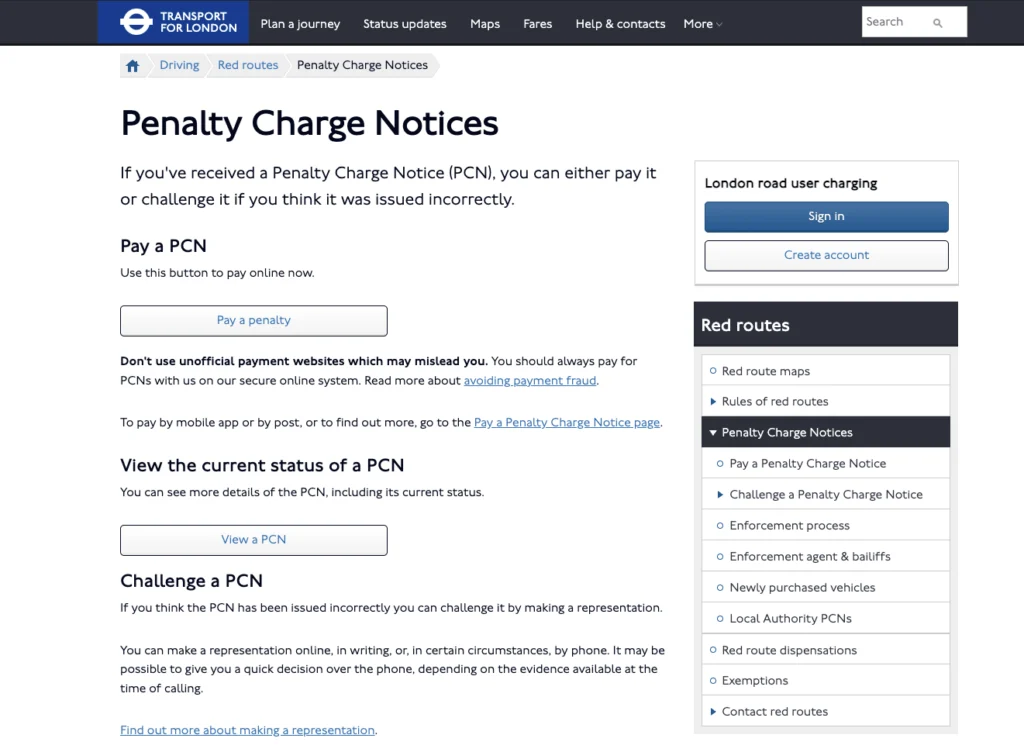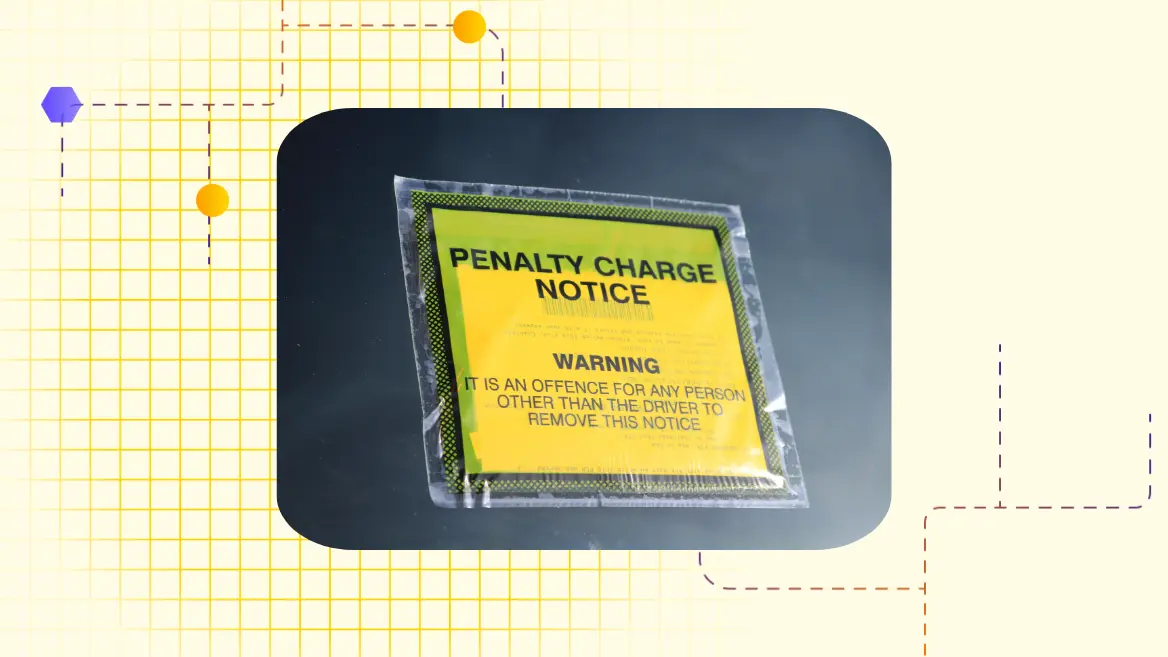If you’re just starting out as a courier driver, you’ve probably already heard about PCNs, or Penalty Charge Notices. They can feel like part of the job, especially when you’re delivering in towns or cities where parking is tight and time is limited.
But too many PCNs can eat into your profits, waste your time, and make running your courier business harder than it needs to be.
In this guide, we’ll explain what PCNs are, how they affect couriers, and what you can do to stay one step ahead.
What we’ll cover
Get access to 15,000+ courier loads a day on Courier Exchange
Be your own boss. Set your own hours. Make your own money.
What are PCNs and who issues them?
When we say PCNs, we’re usually talking about two types of parking charges that get sent through the post. They might look the same at first, but they come from different authorities and follow different rules.
Understanding the types of PCNs
The first type is the Penalty Charge Notice, usually issued by councils or Transport for London. These are official charges under traffic regulations. They apply if you stop in a loading bay for too long, park on double yellows, or enter a bus lane, for example.
The second is the private parking charge, issued by companies like ParkingEye or Euro Car Parks. These apply in supermarket car parks, business estates, or hospital grounds. These aren’t fines in the legal sense. They’re invoices for breaching the terms of private land use.
Both are commonly called PCNs, but they come from different places and carry different weight.
Private parking charges vs council PCNs
Private parking charges are based on contract law. If you park on private land, signs at the entrance usually outline the terms (e.g. 2 hours free for customers). If you break those terms, the company may send a charge to the registered keeper of the vehicle.
Penalty charge notices, on the other hand, come under civil law. Local councils enforce them through ANPR cameras or traffic wardens. If you ignore these, they can be passed to enforcement agents and lead to court action.
It’s worth knowing that only penalty charge notices can lead to bailiff action without a separate court case. For private parking charges, the company must win a claim in the small claims court before anything else happens.
Why courier drivers get so many PCNs
Doing courier jobs means you’re on the road all day, often with tight deadlines and unpredictable drop-off points. That puts you at higher risk of PCNs, especially in busy areas.
You might stop in a loading bay for five minutes longer than allowed. Or return to a street for a second drop, only to get caught by ANPR cameras set up for restricted repeat visits. In some towns, you’ll struggle to find any legal parking within walking distance of the customer.
Many new drivers also stop in private car parks—supermarkets, petrol stations, or hospitals—to grab lunch or take a break. These places often have ANPR cameras and hidden time limits.
And if you’re covering overnight courier jobs, you’re more likely to use car parks late at night when enforcement still applies, but signage is harder to see.
The job puts you in these spots every day. That’s why courier drivers need to be clued up on PCNs early on.
What to do when you receive a PCN
It’s frustrating to get a notice through the post, especially if you feel you were doing your job properly. But it’s always better to act quickly.
How to appeal council-issued PCNs
For penalty charge notices, you usually have 28 days to respond. If you pay within 14 days, the charge is often reduced by 50%. But if you think it’s unfair, you can challenge it.
Submit an appeal online or in writing. For example, if you were issued a PCN by Transport for London, you can pay or appeal the fine on their portal.

Include evidence like delivery logs, GPS vehicle tracking, or time-stamped photos. If you were loading or unloading goods, say so—and provide proof. Couriers are allowed to stop in many restricted areas if the stop is for work and clearly documented.
If the council rejects your appeal, you can take it to an independent tribunal.
How to appeal private parking charge notices?
You can also appeal private parking charges, and many get cancelled when properly challenged. Start by contacting the company with your evidence.
Was the signage poor? Did you stay for less than the grace period? Were you actively working on a delivery? Mention all of that.
If they reject your appeal, you can take the case to POPLA (Parking on Private Land Appeals). Their decisions are independent, and many appeals are successful when there’s strong evidence.
Don’t just ignore a private parking charge. While some companies don’t follow up, many do. If they take the case to court and win, you could end up with extra fees or even a CCJ.
According to the British Parking Association, over 50% of private parking charge appeals are cancelled at the first stage or through POPLA. Common successful appeal reasons include:
- Poor or unclear signage
- Active loading/unloading with proof
- Medical emergencies or broken-down courier vehicle
- Time overstays of less than 10 minutes (within grace period)
The hidden costs of PCNs for courier businesses
It’s not just about the cost of the fine. PCNs affect your time, your admin, and your mental load.
- You lose income every time you pay a fine
- Appeals take time, especially if you’re running solo without office support
- A string of unpaid charges could end up hurting your credit, especially if they go through court
- If you hire vehicles or subcontract, sorting out who’s responsible takes time and energy
Over a month, just a few PCNs can undo the profit from several runs. And that’s before you factor in rising costs like courier van diesel costs and courier insurance.
How to reduce your risk of getting PCNs
The good news is, many PCNs are avoidable once you know where the traps are.
Plan your drop-offs with restrictions in mind
Use mapping tools that show red routes, loading zones, and parking restrictions. Apps like Parkopedia and JustPark can help you find legal spots close to your delivery points.
You can also mark regular drop-offs where restrictions apply, so you know what to expect on repeat visits.
This is especially useful if you’re doing international courier work, where local parking rules can change from one authority to another.
Use delivery evidence to cover yourself
Keep a record of every drop—time, address, and activity. A photo of your van at the delivery location, or a timestamped receipt, can go a long way in an appeal.
Even a screenshot from your delivery app helps show you were on legitimate business.
It’s worth taking that extra 20 seconds, especially if you’re stopping in a spot where enforcement is likely.
Helpful tools and habits for new couriers
Building good habits early makes a big difference.
Set time each week to check for new PCNs. Don’t let appeals pile up. Keep digital folders for receipts and photos. If you subcontract, agree up front who handles fines and how appeals work.
Here are a few tools and practices that help:
- PayByPhone and RingGo for on-the-go parking payments
- Snap Parking for commercial parking and truck-friendly stops
- Subscribe to council updates about congestion charges and traffic schemes
- Bookmark pages like the Dartford Crossing charge portal to avoid missed deadlines
You’ll also want to keep VAT receipts from car parks or road fees. Even though private parking charges aren’t VAT-qualifying, related expenses like council charges and tolls can be.
Typical PCNs costs across the UK
Not all PCNs cost the same. Charges vary depending on where the offence happened and what type of rule was broken. Some areas are much stricter than others, especially if you’re delivering in larger cities or regulated zones.
Here’s a quick overview of common penalty charge notice rates across major UK cities:
PCN charges in major UK cities
| City | Average PCN Fee | Notes |
|---|---|---|
| Birmingham | £70 (£35 early payment) | City centre restrictions, ANPR and bus lane zones |
| Manchester | £60 (£30 early payment) | Includes time-limited bays and loading restrictions |
| Glasgow | £60 (£30 early payment) | City-wide parking and traffic enforcement |
| Leeds | £70 (£35 early payment) | Covers city centre, bus lanes and school zones |
| Bristol | £60 (£30 early payment) | Often issued for restricted parking and loading |
These amounts can add up fast if you’re doing multi-drop or 24-hour courier service work.
While most authorities offer discounts for early payment, appealing or challenging the notice is often worth it, especially if you were delivering at the time.
PCN charges in London boroughs
London is a different beast. Each borough sets its own rates, and many apply higher charges for more serious offences.
If you’re navigating London, understanding the fee structure can help you avoid unnecessary costs.
| Borough/Authority | Average PCN Fee | Notes |
|---|---|---|
| Transport for London (TfL) | £160 (£80 early payment) | Red routes, bus lanes, yellow box junctions |
| Westminster | £130 (£65 early payment) | Very active enforcement in central zones |
| Camden | £130 (£65 early payment) | Includes residential zones and loading areas |
| Hackney | £130 (£65 early payment) | Frequent patrols and bus lane monitoring |
| Islington | £130 (£65 early payment) | Strict rules around schools and cycle lanes |
| Haringey | £110 (£55 early payment) | Less central but still active enforcement |
| Southwark | £130 (£65 early payment) | Controlled zones and ANPR use in high-traffic areas |
These fees apply per offence, and London boroughs often use ANPR cameras and mobile patrols to catch violations.
If you’re picking up overnight courier jobs or running through multiple zones in a day, you’ll want to plan your route carefully and factor in things like toll roads, congestion charges, and parking access.
You’ll also find that some of the best locations for couriers are just outside the stricter central boroughs, offering easier parking and fewer restrictions.
Get access to 15,000+ daily loads on Courier Exchange
Be your own boss. Set your own hours. Make your own money.
Frequently asked questions
What’s the difference between a PCN and a private parking charge?
A Penalty Charge Notice is issued by public bodies, like local councils or Transport for London. A private parking charge comes from a company managing parking on private land. Both are referred to as PCNs, but they follow different legal routes.
Will a PCN affect my credit rating?
Not always. Council penalty charge notices won’t appear on your credit file unless bailiff action escalates. But if a private parking charge goes unpaid and the company takes you to court—and wins—it could result in a CCJ if ignored.
Can I appeal if I was on a delivery?
Yes. Whether it’s council or private, evidence matters. Provide proof of delivery time and location. Explain why the stop was necessary, and include any relevant documents. Many appeals are successful when there’s a clear work-related reason.
How long do I have to deal with a PCN?
Usually 28 days from the issue date. If you pay within 14 days, you often get a discounted rate. But don’t wait too long—late appeals might not be accepted, especially for penalty charge notices.
What if the PCN was sent to my courier company?
If you’re driving a hired or company-owned vehicle, the notice might go to them first. They’ll often nominate you as the driver, passing the liability on. Always check your hire agreement or contract to see who’s responsible for PCNs.




